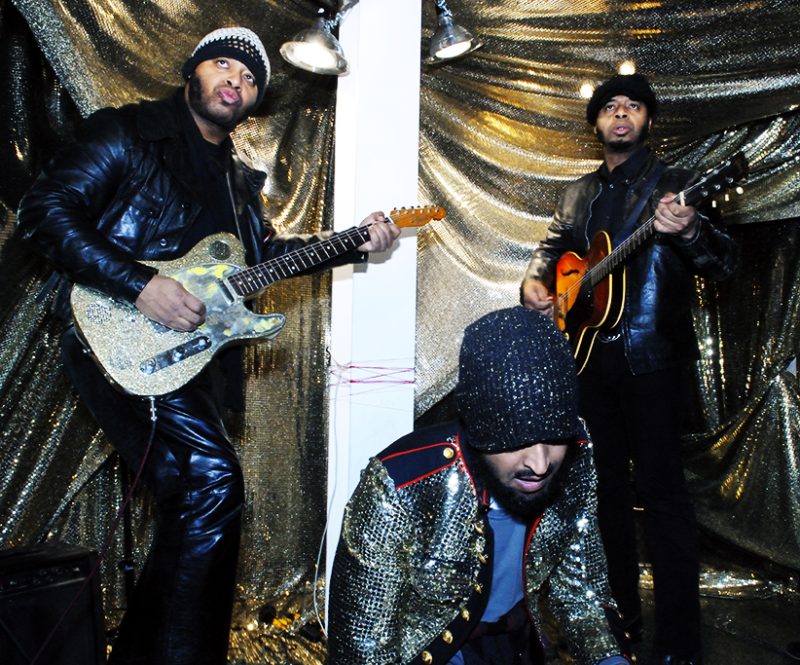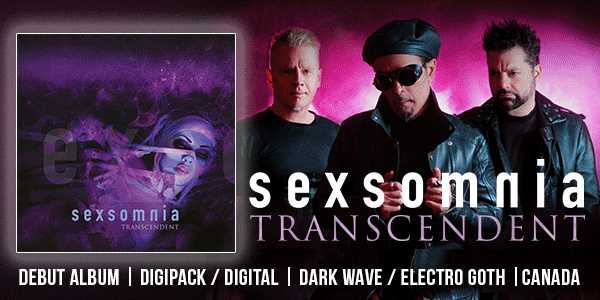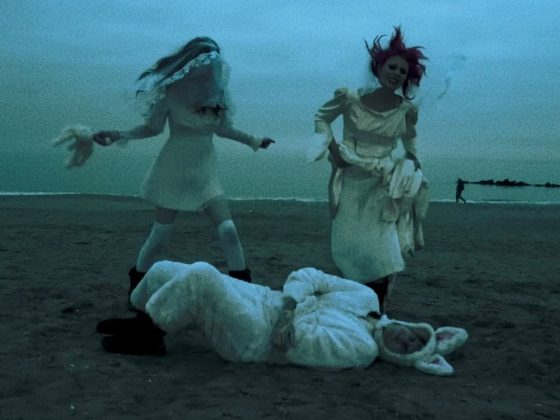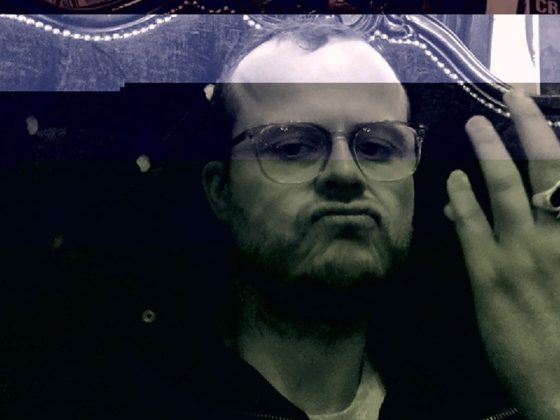Somewhere in the liminal space between shoegaze, soul, free-jazz, and the raw soul of Otis Redding, NYC’s The Veldt carved out a space of their own. Decades ahead of their time, identical twins Daniel and Danny Chavis created a rich discography of extraordinary depth, introspection and resonance.
The Chavis brothers’ nonconformist streak was evident from their youth, when the Raleigh, NC natives both were expelled from their local church choir. As children, they cut their teeth – and musical chops – to gospel, Motown, Prince, Sun Ra, and Pink Floyd, frequenting juke-joints and diving into an eclectic sea of musical influences. By the late 80’s they formed The Veldt, initially signing with Mammoth Records.
Relocating from Raleigh to the vibrant heartbeat of New York’s East Village, this new chapter saw the addition of Hayato Nakao, a bassist-programmer who further enriched the band’s sound. Like their heroes Echo & The Bunnymen, their initial setup involved a drum machine as their rhythm section. At the time, however, The Veldt’s experimentation and forward-thinking dynamism were overshadowed by prejudice from record executives and promoters. Their musical ventures were likewise met with indifference in a world unprepared to welcome their audacious amalgamation of genres. Sadly, The Veldt’s groundbreaking approach wasn’t widely accepted or entirely understood by the mainstream, either.
The Veldt’s unconventional journey was fraught with questionable decisions and missed opportunities. Quite frankly, the Chavises were simply considered the wrong shade of melanin in the post-punk, shoegaze world. Despite collaborations and appearances with a staggering roster of artists: Brian Jonestown Massacre, Pixies, Throwing Muses, Echo & The Bunnymen, Cocteau Twins, Manic Street Preachers, Phantogram, Modern English, The Jesus and Mary Chain, Oasis, and Public Enemy’s Chuck D, for starters – The Veldt suffered a whole host of injustices and racial stereotyping. The brothers recall an A&R representative suggesting they recruit a blonde bass player — an ill-conceived attempt to presumably increase their market appeal. In another blunder, the suits vetoed a promising European tour with Cocteau Twins, instead sending them on a grueling journey through conservative bars in the American South, paired with The Smithereens. Their struggles continued, with record labels suggesting they conform to the mainstream rock sound popularized by Lenny Kravitz.

The Veldt did end up releasing a more beat-centric album, ‘White Music for Black People,‘ in 2007. Despite notable cameos from Robin Guthrie, Mos Def, and Dave Sitek of TV on the Radio, the album suffered commercially due to its resistance to succinct categorization. Despite the ongoing absurdity, the brothers Chavis persisted, forever marching to the beat of their own drum machine.
The cultural landscape of today reveals a dramatically transformed vista that is more understanding of their contributions. No longer an outlier in a conformist world, The Veldt’s groundbreaking sound has emerged as a blueprint. Notably, TV On The Radio, one of the defining bands of the early 2000s, regards The Veldt as one of their key influences. Bloc Party echoes the sentiment. Doc McKinney, who produced The Weeknd’s House of Balloons and Thursday, also acknowledges their influence.
While they may have been underappreciated by the wider public for much of their existence, The Veldt certainly did not go unnoticed by the critics. Pitchfork included their album ‘Afrodisiac‘ (produced by Ray Shulman — known for his work with The Sundays, Bjork, and The Sugarcubes) in its Top 50 shoegaze albums of all time. Their single ‘Until You’re Forever‘ also earned critical distinction, landing in the Top 31 shoegaze tracks listed by Stereogum. This powerful acknowledgment of their influence validates The Veldt’s uncanny foresight and artistic boldness.
In autumn 1989, The Veldt recorded The Everlasting Gobstopper, a collaboration with Cocteau Twins’ Robin Guthrie and featuring backing vocals by Elizabeth Fraser. This single was to be the first taste of their intended debut LP: ‘Illuminated 1989‘, but Capitol Records inexplicably shelved the recording, and it sat collecting dust for years. In the meantime, The Veldt changed course and debuted with another album entirely: Marigolds, produced by Lincoln Fong (Moose).
“As the benchmark of the new sound we had started to develop, ‘The Everlasting Gobstopper’ was a throwback to our younger days of our family getting together on holidays, when Willy Wonka would be playing, and the certain atmosphere would be filled with a sense of love and security,” muses Daniel Chavis. “Upon reminiscing about this, my brother Danny came up with a riff and then called it The Everlasting Gobstopper as a lullaby to put his baby daughter to sleep. Thus was born this sound that would develop into what we have right now. This is significant – the birth of the sound that we have come to develop until present, because back then we were quite a different band. Robin pretty much shaved off all the excess and led us toward the sound we have now, so ‘The Everlasting Gobstopper’ is the cornerstone that Robin helped us to lay for our own unique sound, which we still have to this day.”
In 2022, the Chavises reconnected with Guthrie, and the three decided it was time to reclaim The Everlasting Gobstopper from the clenched jaws of Capitol Records. Guthrie remastered the track in early 2023. Ahead of the full album (due out this autumn), The Veldt is releasing the single digitally and as a 12″ vinyl single via Disc Drive and The Veldt’s new imprint, 5BC Records.
The accompanying video, showcasing the band with interspersed dreamy Super-8 clips, was produced by Jammi York and the late Yuko Sueta. It’s a gorgeous memento of a brotherhood’s long journey, peppered with nostalgia.
‘The Everlasting Gobstopper’ single is now available everywhere. The B-side is ‘Joshuu Lullaby‘, a previously unreleased vinyl exclusive, produced by Robin Guthrie in 2023.
The full ‘Illuminated 1989‘ album will be released on vinyl, CD, cassette and digitally.
Follow The Veldt:















